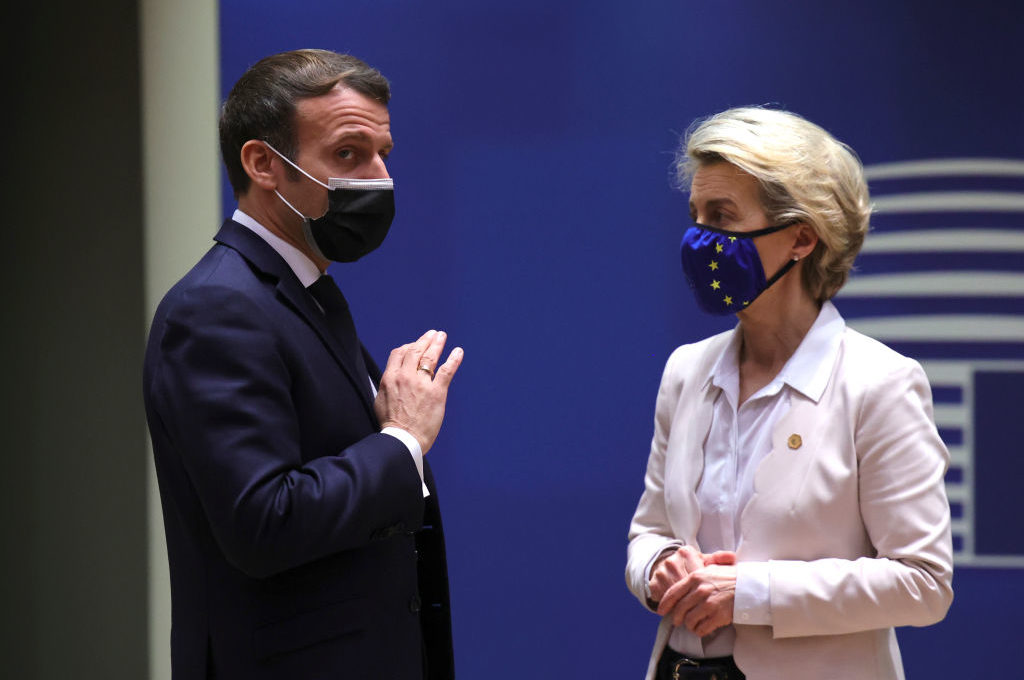Ursula von der Leyen has demanded a full investigation. EU officials are considering pulling out of technology talks with the US. And negotiations over a trade deal with Australia have been put in doubt.
Over the last 24 hours, the full might of the European Union has been deployed on the side of France in the row over a canceled submarine contract and the creation of the Australian-US-UK defense pact.
But hold on. Why exactly is the EU getting behind what is, after all, just an export order for a French arms manufacturer?
There is no mistaking French fury over Australia’s decision to cancel the $40 billion order for submarines, which was placed with France’s Naval Group, and opt instead for an American-British system, at the same time as creating a new three-way defense alliance known as AUKUS.
President Macron has recalled ambassadors from Canberra and Washington. French foreign minister Jean-Yves Le Drian has talked of being ‘stabbed in the back’. The Foreign Legion hasn’t launched a full-scale ground assault on Sydney beach yet, but it may only be a matter of time.
Now it seems Australia will face action from the EU as well. The president of the European Commission Ursula von der Leyen, who knows a bit about contract law from her bruising encounters with AstraZeneca, has demanded an investigation.
The president of the European Council Charles Michel (the EU has a lot of presidents) has accused the AUKUS nations of disloyalty. The EU’s high representative/vice president in charge of foreign affairs Josep Borrell has demanded clarification of how the deal came about.
Meanwhile, Thierry Breton, the EU commissioner for the internal market, warns that transatlantic relations are ‘broken’. Australia has been left in no doubt that it faces the full fury of the bloc.
And yet, once you pause to think about it, that is weird. The submarine contract was with Naval Group, a company part owned by the French government, and part by the French arms company Thales (in which the French state is also a major shareholder).
It wasn’t with another government, and to the extent it was it was just with the French government. No other European country or companies were involved in the deal in any significant way, nor did they stand to benefit from it, except in the very limited sense that it would have made France a little wealthier.
True, Naval Group may well have a legal claim against the Australian government, although presumably its lawyers checked the break clauses in the contract carefully before cancelling the deal. But it is hard to understand why the EU needs to be involved in what was a private business deal. It doesn’t normally get involved in commercial disputes, and what purpose would it serve if it did?
The EU doesn’t rush to the aid of Deutsche Bank when a bond trade gets scrapped, or Mercedes when a track order is canceled — or Nokia when a deal for telecoms equipment goes sour.
In business, this stuff happens all the time. It provides plenty of work for contract lawyers, and when necessary a settlement is reached. It doesn’t usually spark a full-scale diplomatic conflict.
So the reality is this: the EU is embarrassing itself. It is meant to be a rules-based organization that believes in free and open competition. Instead, it is turning itself into little more than a branch of French industrial policy.
Of course, that is its decision. But it is hard to see what Poland, or Spain or the Czech Republic get out of scrapping talks on a trade deal with Australia to help a French arms manufacturer? And it can hardly complain if other members start to lose interest — and that the British are reminded why they are glad to be out.
This article was originally published on The Spectator’s UK website.

























